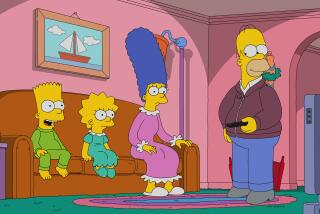Flaw in the Anointment: Experts Predicted Gore
- Share via
WASHINGTON — Political scientists whose 2000 election forecasts all predicted an easy victory for Al Gore have offered explanations for why their elaborate mathematical models were wrong. The explanations don’t all agree with each other.
In May and again in September, The Washington Post reported on these scholars’ projections. They foresaw Vice President Al Gore winning from 52.8% to 60.3% of the votes cast for one of the two major-party candidates. Gore won 50.2% of the two-party vote, while barely losing to Texas Gov. George W. Bush in the electoral college.
In new academic articles to be published this spring, the authors of seven different forecasts reflected on why their mathematical models--mostly based on economic conditions and opinion poll results--failed to predict the 2000 result accurately. The models, applied retrospectively to elections since 1948, had been close to the actual results of most elections during that period, though they used data collected months before election day. All the models are based implicitly on the theory that voters cast ballots based first of all on their desire to reward or punish the incumbent party, mostly for the state of the economy.
“Needless to say,” wrote Thomas M. Holbrook of the University of Wisconsin at Milwaukee, “the election outcome left a bit of egg on the faces of the academic forecasters.” Holbrook’s model predicted Gore would win 60.3% of the two-party vote.
In calculating his prediction, Holbrook used Gallup poll approval ratings of the incumbent president and a University of Michigan index of voters’ satisfaction with their economic situations. That number was off the charts in the summer of 2000, the highest ever.
“The electorate didn’t assign as much weight to economic considerations” as in the past, Holbrook concluded. He also suggested that last year’s voters got a lot of negative news about the economy despite its good health, primarily because of rising gasoline prices and a falling stock market.
Several scholars cited a poor Gore campaign as a reason for their models’ failure. “Amazingly,” wrote James E. Campbell of the University of Buffalo, who predicted a 52.8% Gore victory, the former vice president did not exploit the incumbent’s opportunity to run on a good economy, “highlight it for voters, and convert it into votes.” Campbell perceived “a significant mismatch in the quality of the two campaigns,” to Bush’s advantage.
Alan Abramowitz of Emory University (whose model predicted Gore would win 53.2% of the two-party vote) blamed “Clinton fatigue.” “It seems very likely that the Clinton scandals cost Gore a decisive victory,” he wrote, citing exit polls showing how heavily those who disapproved of Clinton favored Bush.
Abramowitz and other forecasters argued in advance that third-party candidates shouldn’t change the outcome, because they traditionally have drawn votes almost equally from both parties. This didn’t happen in 2000, Abramowitz concluded. Exit polls showed Ralph Nader took many more votes from Gore than Bush, and lowered Gore’s vote by a full percentage point, and by more than enough to give the electoral votes of Florida and New Hampshire to Bush.
Michael S. Lewis-Beck of the University of Iowa and his forecasting partner, Charles Tien of Hunter College, offered a defiant postmortem. “Gore’s vote total should have been much higher than it was,” they wrote. “The Gore outcome is clearly on the fringe of our known world, the world of post-World War II elections.” They described the 2000 result as a “stochastic [random] shock.” Their model had foreseen Gore winning 56.9% of the two-party vote. “It’s not even going to be close,” Lewis-Beck said in May.
Christopher Wlezien of the University of Houston and colleague Robert S. Erickson of Columbia were more modest, writing that their model “does not--indeed, cannot--anticipate” special factors that arise during a campaign. In another recent paper, Wlezien speculated that Gore’s platform was too liberal, that the economy was not as strong as it appeared, and that Gore hurt himself by failing to run more explicitly on the accomplishments of the previous eight years.
More to Read
Get the L.A. Times Politics newsletter
Deeply reported insights into legislation, politics and policy from Sacramento, Washington and beyond. In your inbox twice per week.
You may occasionally receive promotional content from the Los Angeles Times.










